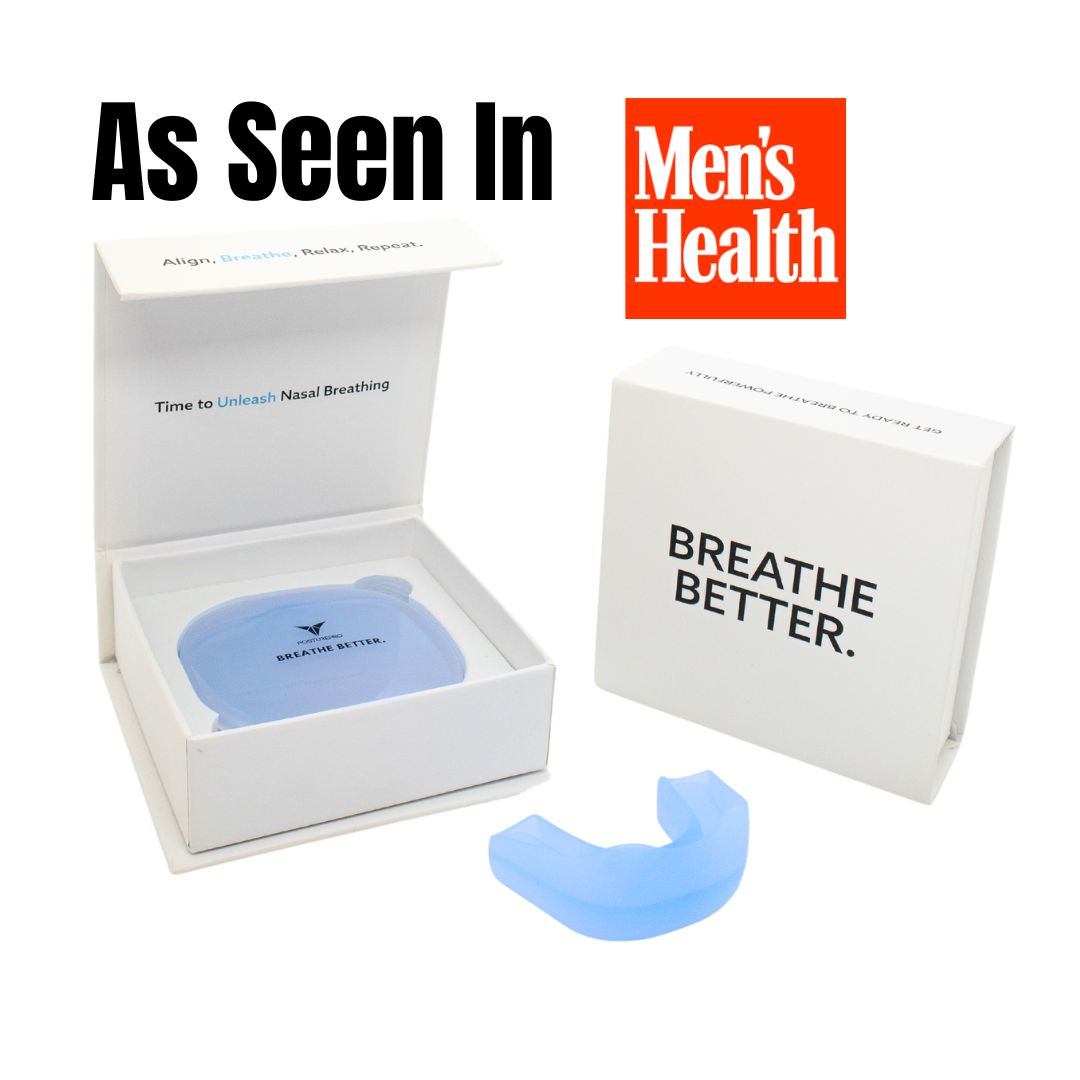Did you know that your jaw could be the reason for your uneven shoulders or forward head posture? Many people focus on their back, core, or feet when trying to improve their posture, but few realize that jaw alignment plays a crucial role in full-body stability.
Your jaw, or temporomandibular joint (TMJ), connects directly to your skull and influences the entire body’s postural alignment. When it’s out of balance, it can lead to compensations throughout the musculoskeletal system, causing everything from chronic pain to poor posture.
In this article, we’ll break down how your jaw affects your posture, why most devices fail to address the body globally, and four quick tests to see if your TMJ could be causing postural imbalances.
Fix an Uneven Jaw and Improve Tongue Posture with the Functional Activator
How TMJ Imbalances Affect Your Posture Long-Term
The jaw isn’t just for chewing—it plays a key role in body alignment. When the TMJ is misaligned, it creates a chain reaction that affects the spine, neck, and even your hips. Here’s how:
1. Jaw Misalignment Leads to Forward Head Posture
A misaligned jaw alters how the head sits on the spine. This can lead to forward head posture, where the head moves too far in front of the body. Over time, this stresses the neck muscles, causing tightness and discomfort.
2. Uneven Bite Causes Shoulder and Pelvic Imbalances
If your bite is uneven, your body will compensate by shifting weight to one side. This can lead to one shoulder being higher than the other, or even a tilt in the pelvis.
3. Poor Tongue Posture Weakens Postural Stability
The tongue plays a crucial role in keeping the jaw and spine aligned. If your tongue rests improperly (low or too far back), it can contribute to poor posture and breathing difficulties.
4. Jaw Tension Increases Stress and Muscle Tightness
Clenching or grinding your teeth puts excessive stress on the TMJ, leading to tension in the neck and shoulders. Over time, this tension pulls the body out of alignment, making it harder to maintain good posture.
4 Quick Tests to See if Your Jaw is Affecting Your Posture
If you’re experiencing posture issues, these four simple tests can help determine whether your jaw is part of the problem.
1. Forward Head Posture Test
• Stand with your back against a wall, keeping your heels, hips, and upper back touching it.
• Try to bring the back of your head to the wall without tilting your chin up.
• If this feels difficult or uncomfortable, your jaw and neck alignment may be off.
2. Uneven Shoulders Test
• Stand in front of a mirror and look at your shoulders.
• If one shoulder is higher than the other, it may be due to jaw imbalances affecting your spine and muscle tension.
3. Tongue Posture Test
• Close your mouth and place your tongue on the roof of your mouth, just behind your upper teeth.
• Try to breathe through your nose while maintaining this position.
• If it feels unnatural or difficult, your tongue posture could be affecting your jaw and spinal alignment.
4. Clenching Test
• Gently clench your teeth and take note of any tension in your jaw, neck, or shoulders.
• If you feel tightness or discomfort, it’s a sign that TMJ tension is impacting your posture.
Why Most Devices Fail to Address the Body Globally
Many posture correction devices focus on isolated areas like the back or shoulders but ignore how the body functions as a whole. This is why they often fail to provide long-term relief.
The TMJ is a key component of postural alignment, and unless it’s addressed along with other factors like foot stability and eye function, postural imbalances will persist.
At Posturepro, we take a global approach to posture correction. By integrating jaw alignment with proper tongue posture, foot mechanics, and nervous system activation, we help retrain your body for lasting improvements.
👉 Breathe Better with the Functional Activator
Make the choice today for better breathing, posture, and overall health!








